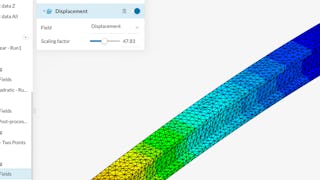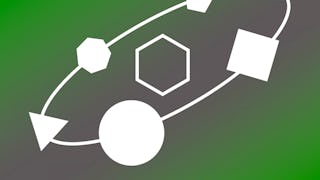Filter by
SubjectRequired
LanguageRequired
The language used throughout the course, in both instruction and assessments.
Learning ProductRequired
LevelRequired
DurationRequired
SkillsRequired
SubtitlesRequired
EducatorRequired
Find the best Data Analytics course for your goals

Coursera Project Network
Skills you'll gain: Content Performance Analysis, Employee Surveys, Developing Training Materials, Data Analysis Software, User Accounts, Microsoft 365, Education Software and Technology
 Status: Free Trial
Status: Free TrialUniversity of Colorado Boulder
Skills you'll gain: Journalism, Music, Culture, Media and Communications, Liberal Arts, Art History, Storytelling, Creativity, Music History, World History, Visualization (Computer Graphics), Scientific Visualization, Science and Research, Writing
 Status: Free Trial
Status: Free TrialSkills you'll gain: Load Balancing, Virtual Private Networks (VPN), Microsoft Azure, Network Monitoring, Network Troubleshooting, Network Architecture, Data Storage Technologies, Network Administration, Virtual Machines, Disaster Recovery, System Monitoring, Network Security, Cloud Security

Coursera Project Network
Skills you'll gain: Finite Element Methods, Simulation and Simulation Software, Data Validation, Simulations, Engineering Analysis, Verification And Validation, Engineering Calculations, Mechanical Engineering, Scientific Visualization, Physics
 Status: NewStatus: Free Trial
Status: NewStatus: Free TrialSkills you'll gain: Disaster Recovery, Data Validation, Business Continuity, Security Controls, Risk Mitigation, Project Management, Risk Management, System Testing, Technical Management, System Implementation, Data Integrity, Software Development Methodologies

Coursera Project Network
Skills you'll gain: Node.JS, Restful API, Application Programming Interface (API), Back-End Web Development, Microsoft Visual Studio, Web Applications, Javascript, Application Development
 Status: Free Trial
Status: Free TrialSkills you'll gain: Amazon Web Services, Distributed Denial-Of-Service (DDoS) Attacks, Infrastructure Security, Cloud Security, Network Security, AWS Identity and Access Management (IAM), Application Security, Firewall, Amazon Elastic Compute Cloud, Endpoint Security, Vulnerability Management, Amazon CloudWatch
 Status: Free Trial
Status: Free TrialSkills you'll gain: Benchmarking, Sales Strategy, Business Development, New Business Development, Market Research, Sales, Market Opportunities, Change Management, Innovation, Market Analysis, Consumer Behaviour, Competitive Analysis, Target Market, Business Strategies
 Status: Free
Status: FreeCoursera Project Network
Skills you'll gain: Web Applications, SQL, Database Application, Data Access, Go (Programming Language), Database Management, Relational Databases, Web Development, Back-End Web Development, Secure Coding, Application Security
 Status: NewStatus: Free Trial
Status: NewStatus: Free TrialSkills you'll gain: Database Design, SQL, Relational Databases, Databases, Database Systems, Database Management, Data Modeling, Query Languages

Coursera Project Network
Skills you'll gain: Graphic and Visual Design Software, Graphic Design, Design Elements And Principles, Creative Design, Marketing, Design Software, Content Creation, Data Sharing
 Status: NewStatus: Preview
Status: NewStatus: PreviewSkills you'll gain: Financial Statement Analysis, Working Capital, Credit Risk, Financial Analysis, Risk Modeling, Financial Modeling, Financial Data, Risk Analysis, Financial Acumen, Risk Management, Cash Flows, Balance Sheet, Business Metrics, Bankruptcies
Data Analytics learners also search
In summary, here are 10 of our most popular data analytics courses
- Create a quiz using Microsoft Forms: Coursera Project Network
- Space is Everywhere: University of Colorado Boulder
- AZ-104: Networking, Monitoring, and Backup Strategies: Packt
- Eine Einführung in die Finite Elemente Methode mit SimScale: Coursera Project Network
- CISA Certified Information Systems Auditor: Unit 3: Pearson
- APIs in Node.js: Write a RESTful API Backend Application: Coursera Project Network
- Securing Hosts, Network, and Edge in AWS: Packt
- Sales mindset y análisis de mercado: UBITS
- Relational Database with Go: Build an Article Search Engine: Coursera Project Network
- SQL for Any IT Professional: Unit 1: Pearson










